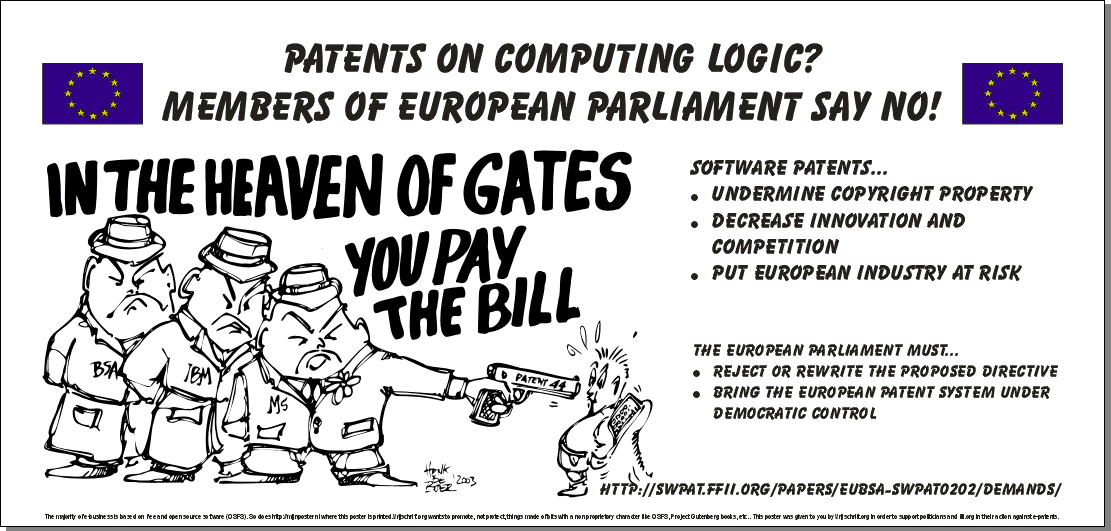|
is that what it really is? and an old greek saying that fits the situation: the closure of a factory marks the opening of a university. 8:10:46 PM |
|
free software: the dawn of the day that people will discover the tools they need ....i wrote a short essay explaining what fascinates me the most in free software as the first assignment for the free software course. here goes then:
<>-- Foucault said that, some day, the people will
discover the tools they need. That is one reason why free software is truly subversive.
Not because hackers, due to their mass media portayal, encapsulate the
image of the lone revolutionary better than other subcultural icons or
comic book heroes much like Batman. And not only because free software
is, contrary to what some people would like us to believe, indeed, “free
beer”. But because free software, above and beyond all other things, is
free people collaborating to build tools not in order to eke out a profit,
but to use them. “Let us imagine, for a change, an association of free
men, working with the means of production held in common, and expending
their many different forms of labour- power in full self-awareness as
one single social labour force”.[3] The radical implications of
the shift in collective subjectivity arising from people, who, en masse,
use the tools they need to create new situations they individually desire
is compelling enough to tremble the earth. Let us recall these words from
a black worker to a white boss: “When we first saw your trucks and planes
we thought that you were gods. Then, after a few years we learned how
to drive your trucks, as we shall soon learn how to fly your planes, and
we understood that what interested you most was manufacturing trucks and
planes and making money. For our part, what we are interested in is using
them. Now, you are just our metal-workers.”[4] The emancipatory
force of the reversal of perspective is upon us. Now it's time we put
it to use before it all fades away into spectacular success stories centred
on ingenious hacker-enterpreneurs and nonsensical information societies. Notes [1] Case is the name of the main character in William
Gibson' s legendary sci-fi novel Neuromancer (1984) which is being
credited for coining the terms cyberspace and matrix. Burning Chrome
is one of Gibson's short novels telling the story of two hackers who are
being paid to destroy Chrome – a powerful lifeform that cannot be
defined or understood as either purely physical (human – organic),
nor as a solely digital and/or synthetic (ie., a cybernetic system) being.
8:07:04 PM |
|
Making education relevant - online. a few months ago, douglas rushkoff issued an open invitation to cyberians to join his class on theoretical perspectives on interactivity. a weblog replaced the classroom (or, actually, it complemented it, but whetever) and for the first time i had a glimpse of the future of education to come: where all student contributions are in the open, accessible for others to examine, comment, and build upon. a truly fascinating thought to ponder, pointing to a future where education will be relevant, rather than merely confining itself to the prestigious role of giving out glossy pieces of paper.
and now, goteborg university issued an open invitation to cyberians to participate in their course on open source/free software: philosophy and theory, which, to my knowledge, is the first university course ever premised entirely on theoretical aspects centred on free software. in addition, the entire course is being delivered online. way to go people. count me in. |




